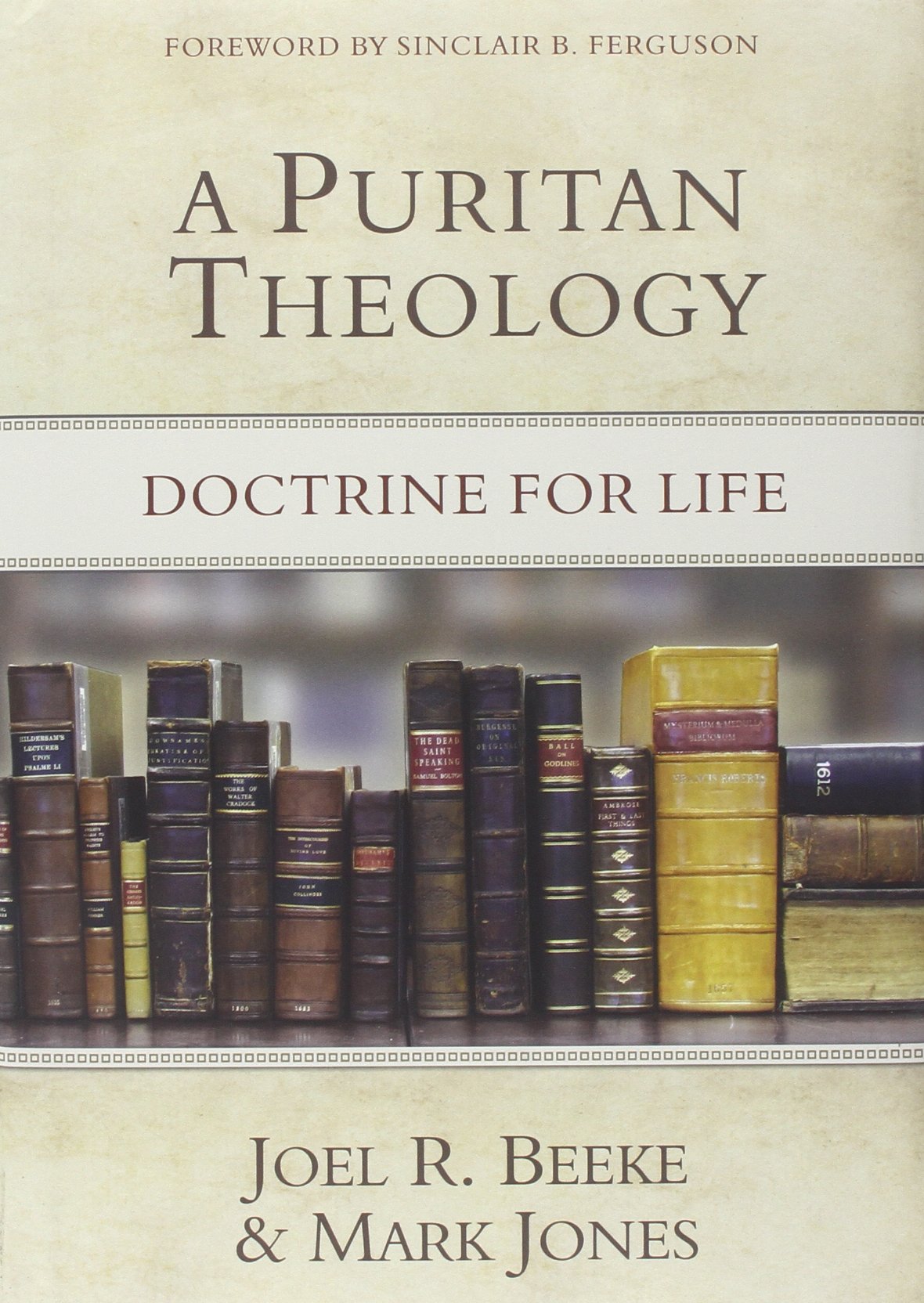The Puritans were nothing if not prolific authors, and keeping up with the hundreds of their works republished over the past generation is a daunting task to say the least. Some have made the specialized attempt, and various “Introductions” and “Appreciations” of the Puritans have happily marked the Christian publishing landscape as a result. We may be grateful now that Joel Beeke and Mark Jones have accomplished the monumental task of providing an in-depth “Systematic Theology” of Puritan thought.
A Puritan Theology organizes and addresses Puritan teachings on the major departments of theology – Prolegomena, Theology Proper, Anthropology and Covenant Theology, Christology, Soteriology, Ecclesiology, Eschatology, and Theology in Practice – covering some fifty areas of specific doctrine. Some of the 60 chapters highlight the works of individual Puritan theologians according to noted specific contributions they have made.
- Stephen Charnock on the Attributes of God
- John Owen on Communion with God, Justification, Christian Sabbath and Worship
- William Perkins on Predestination
- Thomas Goodwin and Johannes Maccovius on Justification from Eternity
- Thomas Goodwin on Christological Supralapsarianism
- Anthony Bergess on Christ’s Intercessory Work
- Richard Sibbes on Entertaining the Holy Spirit
- William Perkins on Conscience
- Thomas Manton on Judgment according to Works
- John Bunyan on Preaching to the Heart
- Matthew Henry on Prayer
- Christopher Love on the Glories of Heaven and the Terrors of Hell
This book is at once a Systematic Theology as understood by the Puritans and a gold mine resource for Historical Theology. Beeke and Jones 1) lay out the teaching of the Puritans on all of the main heads of theology, 2) in the Puritans’ own historical context, 3) demonstrating throughout the relation of the Puritans’ teaching to that of the magisterial Reformers, the early Dutch theologians, Turretin, and others.
The Puritans were famous for their desire not only to increase in theological knowledge but by that to promote personal godliness and holy affections, and much of that spirit is preserved here also.
One surprising lacuna regards the death and resurrection of Christ. For all the wonderful reflections on the benefits of Christ’s saving work there is relatively little on that saving work itself: little exposition of substitution, nothing specific on propitiation, reconciliation, redemption, expiation, Christ’s death as Sacrifice, his resurrection, etc. I would have expected more on this score – certainly something reflecting Owen’s landmark work on the atonement.
Perhaps another volume still to come: The Puritans on the Work of Christ? Still, this massive compendium of Puritan theology is indeed a treasure trove for theologians, historians, pastors, and educated laymen who seek to learn more about theology and about Puritan theology in particular. It will surely be in print for many years to come, and time spent with it will enrich preaching and teaching considerably.
Fred G. Zaspel
